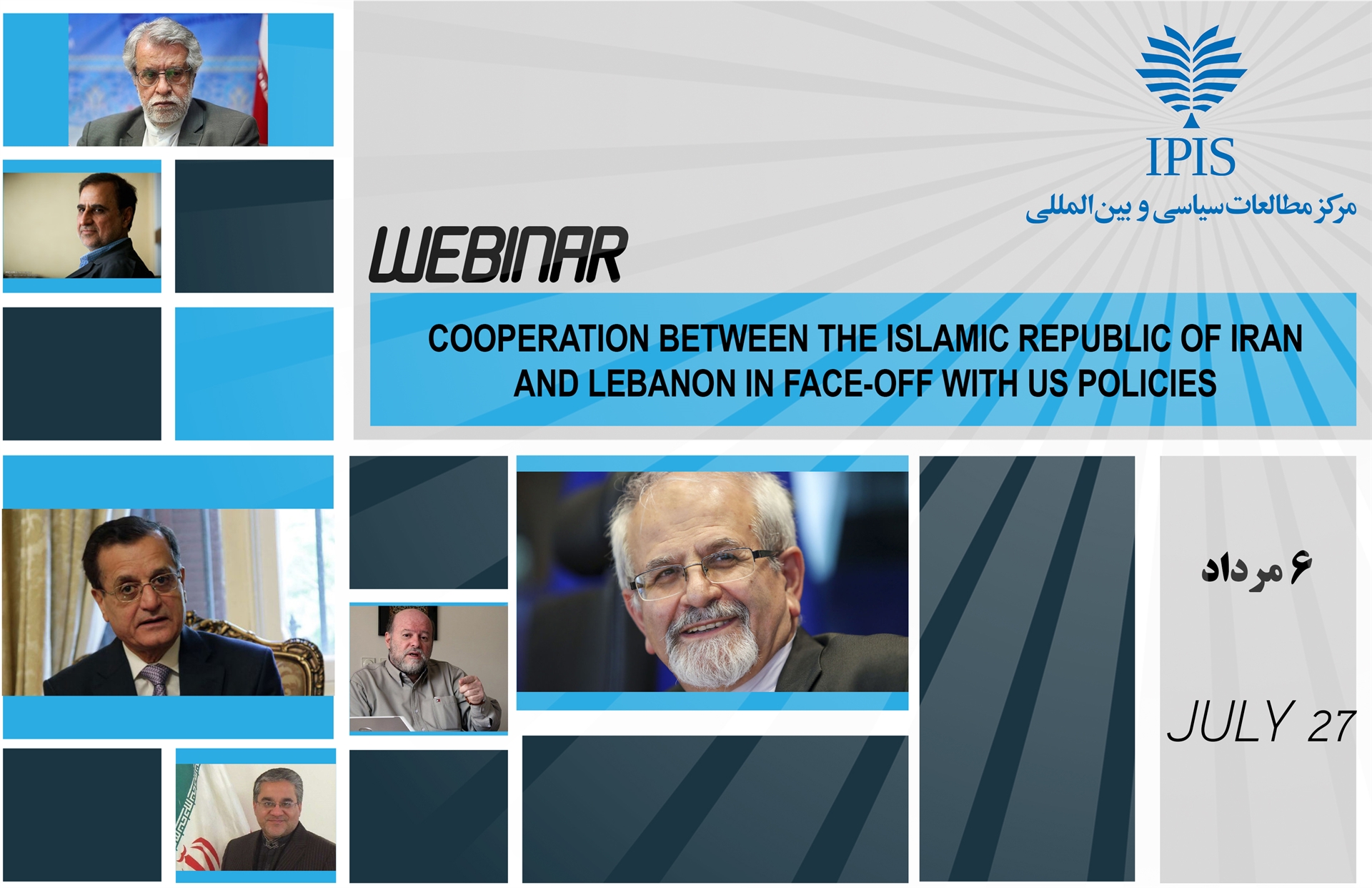Cooperation between the Islamic Republic of Iran and Lebanon in Face-Off with US Policies
The Institute for Political and International Studies (IPIS) held an online panel discussion of Iran and Lebanon, entitled “Cooperation between the Islamic Republic of Iran and Lebanon in the Face-Off with US Policies” on Monday, July 27, 2020.

The Institute for Political and International Studies (IPIS) held an online panel discussion of Iran and Lebanon, entitled “Cooperation between the Islamic Republic of Iran and Lebanon in the Face-Off with US Policies” on Monday, July 27, 2020. The webinar was held under the auspices of the IPIS and the Consultative Center for Studies and Documentation of Lebanon. The speakers at the webinar were Seyed Mohammad Kazem Sajjadpoor, president of the IPIS; Saeed Khatibzadeh, IPIS vice-president for research; Hassan Ahmadian, the University of Tehran professor; Mojtaba Ferdowsipoor, senior fellow on Iraq studies at the IPIS; Massoud Asadollahi, senior expert on the West Asia; Adnan Mansour, former minister of foreign affairs of Lebanon; Anis al-Naqqash, director of Aman research organization; Hosam Matar, director of strategic studies at the Consultative Center for Studies and Documentation of Lebanon; as well as Albert Dagher and Ali Zaatar, professors of political economy at the Lebanese University.
In the first part of the panel discussion, which revolved around the “bilateral relations”, participants discussed the challenges and opportunities facing Tehran-Beirut relations and the future scenarios. The second part of the webinar, entitled “Iran and Lebanon, regional interaction and countering the US policies”, focused on the consequences of the US policy of pressures and the relevant regional developments.
The main topics discussed in the webinar were as follows:
The relations between Iran and Lebanon in the modern history date back to more than a century ago. Despite the ups and downs caused by the regional and international developments over time, the relations between the two countries have been always friendly. The Islamic Republic of Iran’s policy towards Lebanon is based upon the principles of defending the establishment of peace and stability in Lebanon, supporting its territorial integrity against the Zionist regime, and backing the process of political sovereignty on the basis of participation of all Lebanese parties. Apart from the historical and cultural bonds between people of the two countries, Lebanon has gained a growingly significant position in the Islamic Republic of Iran’s foreign policy due to a series of factors: the economic and political dimensions of relations, the US move to impose the policy of pressure with the purpose of changing the regional balance, Lebanon’s proximity to the occupied Palestine, allowing the Palestinian refugees entry, being a constant target for the Zionist regime’s military attacks, and the existence of resistance movements in that country.
The reciprocal and coordinated roles that Iran and Lebanon have played in the West Asia in the fight against state-sponsored terrorism and extremism (Zionism and Takfirism) are known as a successful and driving model in this sphere. Moreover, the two countries are pursuing economic interaction to deal with and overcome the complicated situation and pressures under the US sanctions. Considering the capacities of Iran, Lebanon, Syria and Iraq as a quadripartite group in the region and beyond, they can create networks inside and outside the region to handle the situation and create balance in favor of the interests of the regional countries.
A series of suggestions were put forward at the conclusion of the meeting, including plans to set up an initial quadripartite taskforce in order to create strategic partnership, develop the infrastructural facilities -particularly construction of linking routes on the land and through the sea, employ the geopolitical capacities of Syria, establish a regional and trans-regional financial-banking exchange system, promote trade by organizing cooperation among the customs offices, take advantage of the private sector’s potential, and work on a structural simulation of military-security interaction with the process of economic interaction for the purpose of managing the situation ahead.